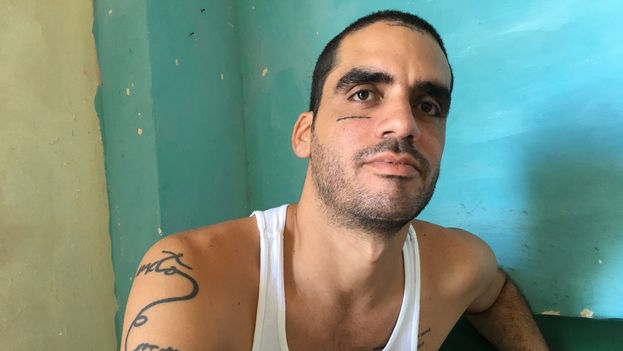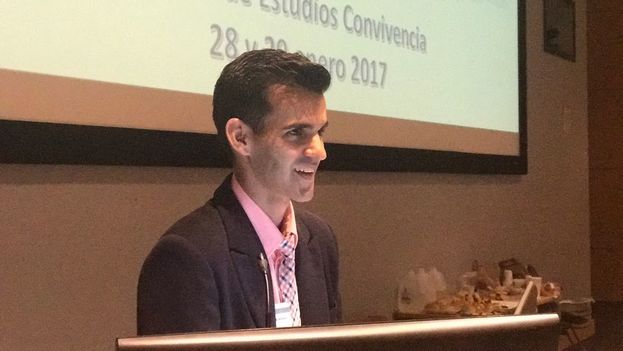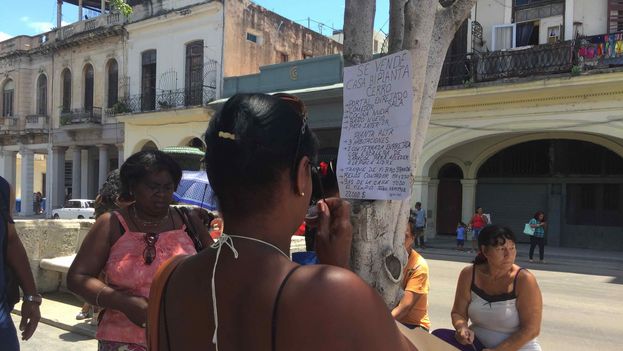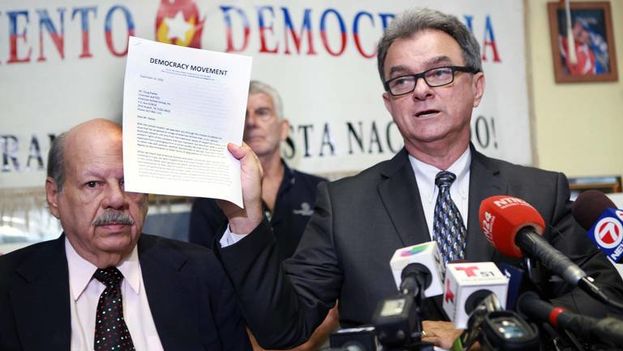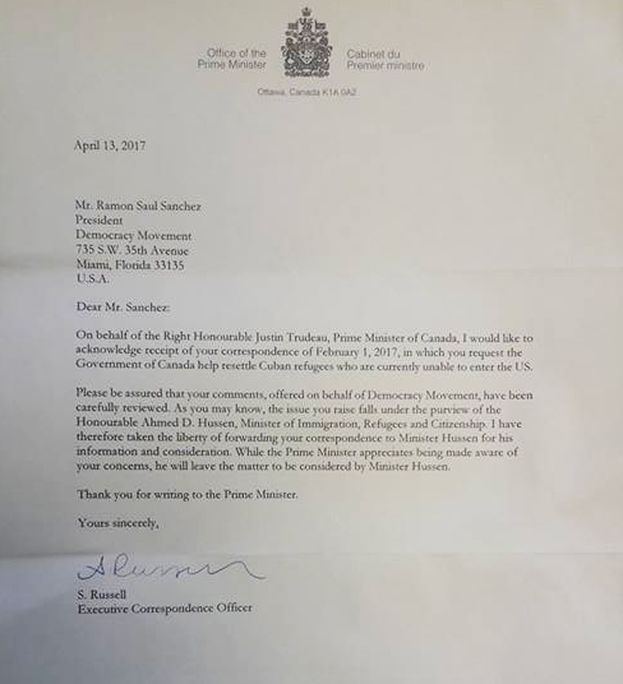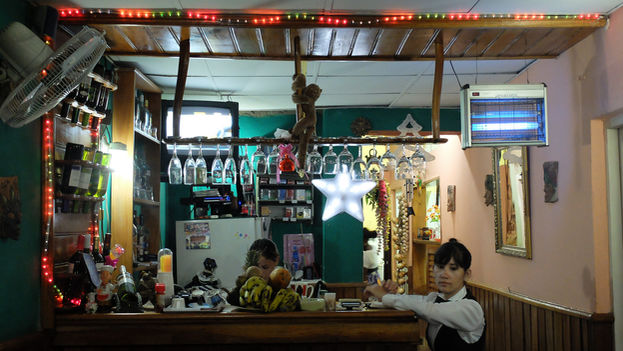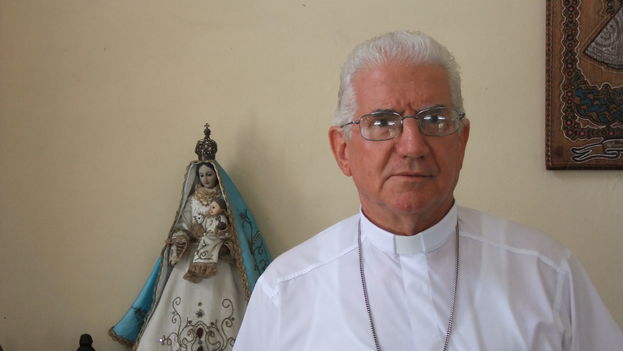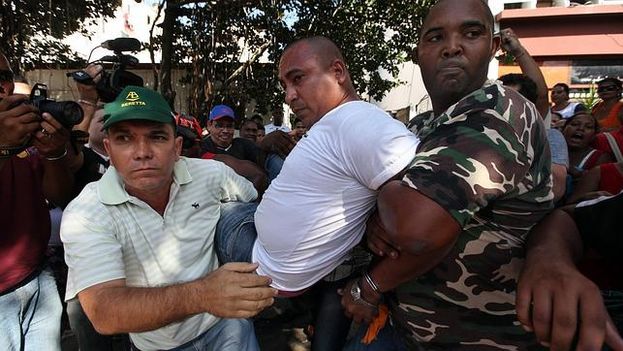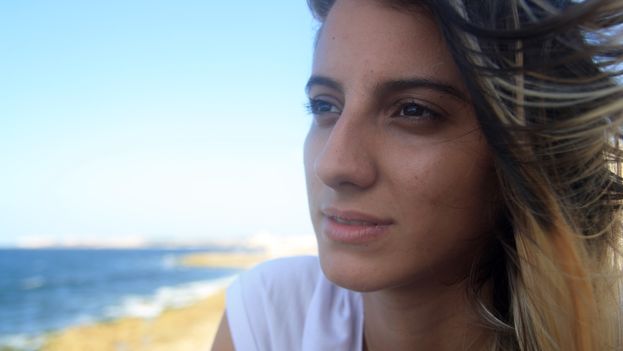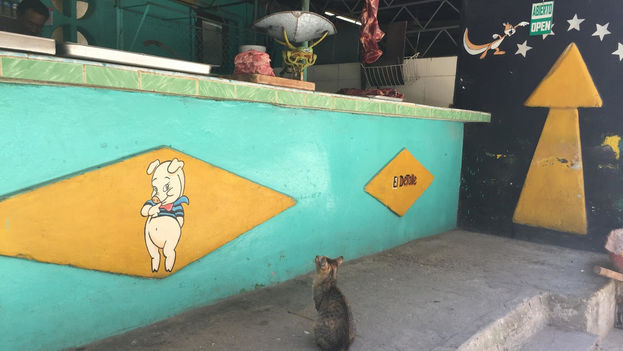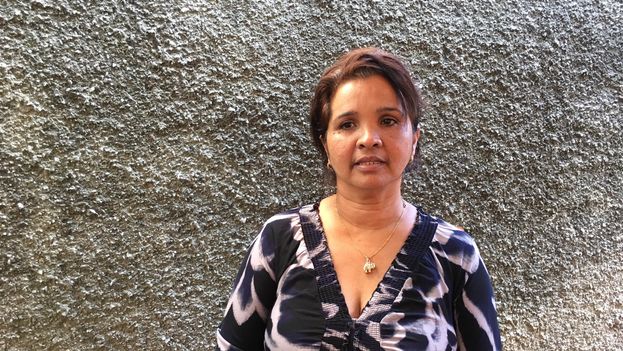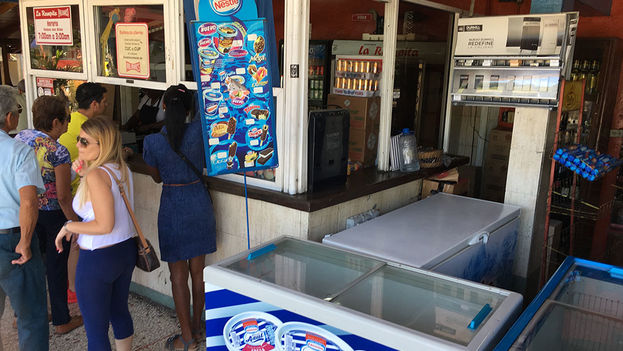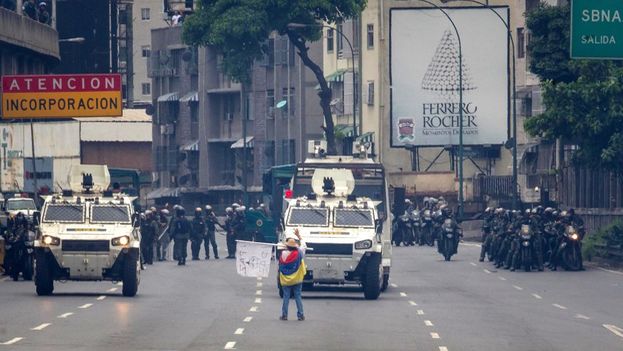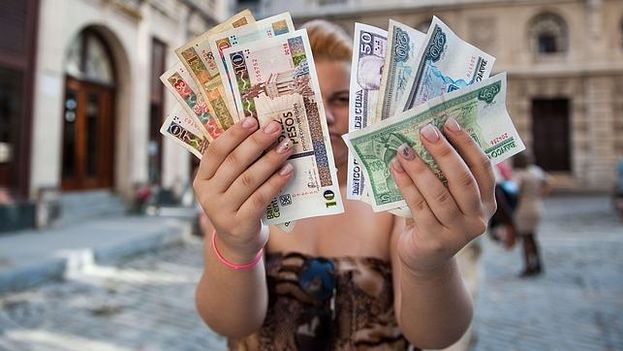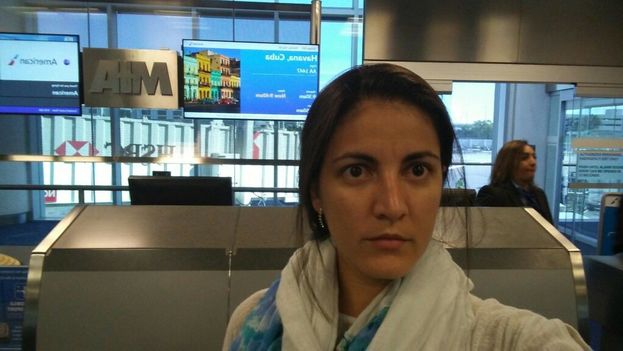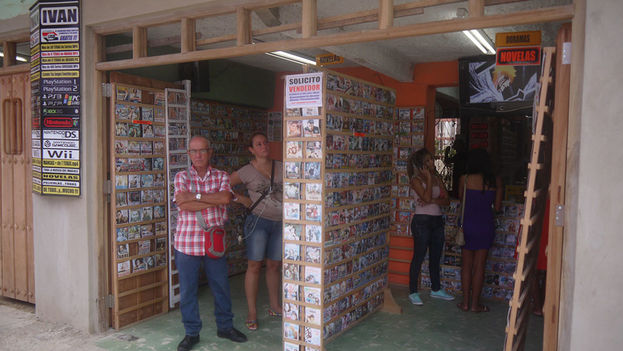
![]() 14ymedio, Marcelo Hernandez, Havana, 16 May 2017 — Hanging from the rearview mirror, the compact disc shines with the sun and swings with every bump in the street. From being highly valued as a platform for digital content, CDs and DVDs are becoming mere decorative objects, symbols of a technological era that is ending.
14ymedio, Marcelo Hernandez, Havana, 16 May 2017 — Hanging from the rearview mirror, the compact disc shines with the sun and swings with every bump in the street. From being highly valued as a platform for digital content, CDs and DVDs are becoming mere decorative objects, symbols of a technological era that is ending.
“Every day I sell fewer discs,” says Julian, who for almost five years had been dedicated to the trade in TV shows, movies and musicals on CDs and DVDs in Havana’s Diez de Octubre district.
With the expansion of the private sector, the streets of the country filled with stands and stores that began to offer entertainment of every kind. Colorful shelves, filled with every kind of product, have become a part of the urban landscape. continue reading
“Most of what I sell I copy directly from the computer to the device that the customer brings,” says Julian
The outlets dedicated to the trade in audiovisuals have been an alternative to the boring and ideologized television programming, but the technological advances and the saturation of the market are forcing many to close or convert to selling other things.
The competition from the Weekly Packet is tough and the CD/DVD sellers have a hard time keeping a current set of offerings. The alternative has been to go from selling CDs and DVDs to offering customers copies of materials on removable devices such as USB drives and external hard drives, but the rules governing self-employment does not encompass that form of the business.
“Most of what I sell I copy directly from the computer to the device that the customer brings,” says Julian. In a small room, located in the portal of a half-demolished house, the shelf with the disks also houses a laptop equipped with a three-terabyte hard drive.
“Here I have it all,” he details proudly to 14ymedio, while caressing the drive that “a brother living in la yuma,” (the US) brought him. The buyers can choose the amount of content they want and the subject matter.
“In this neighborhood four other places where CDs and DVDs were sold have closed,” says Julian. “We have been kept afloat thanks to direct copy,” he says.
He makes the copies “left and right” without worrying about the intellectual property rights of national and foreign artists.
On the Island, copyright is addressed in Law 14 of 1977 and applies to “scientific, artistic, literary and educational works of an original character” whatever its forms of expression, content, value or destiny. But in practice these provisions are not upheld.
Copies are made “left and right” without worrying about the intellectual property rights of national and foreign artists
An investigation carried out at the University of Granma by Marianela Paneque Mojena concludes that “sellers of reproducible CDs violate copyright with respect to the positive faculty of disclosure of the work.” Meanwhile “the copyright holders do not receive any remuneration for the CD with their authorship.” The National Copyright Center is responsible for managing intellectual property registrations and ensuring that these rights are not violated, but in practice it is nothing more than an inventory of works and authors.
This situation coexists with “an ignorance and lack of control on the part of the government bodies responsible for overseeing the work done by the sellers of reproducible discs,” assures the study.
Julian cares less about the issue of intellectual property and more about the profits from his business. “It is becoming increasingly difficult to buy the discs, because the stores are all out of them, and even the black market doesn’t have them.” An additional reason to go with another media.
The entrepreneur believes that his work is still “a business,” because it falls within the simplified tax schedule with a fixed tax of 60 Cuban pesos a month. In addition to this he contributes to social security and pays a tax for posting a sign visible in the street.
However, he believes that the business “is no longer the same, because many people download the materials from the wifi or share them for free.” He is sure that in a short time “all these disks that are now on display, will only be the images of what can be copied from the laptop.”
“What flies off the shelves are the telenovelas, first-run feature films, musicals and reality shows,” he comments. Although he also has customers who ask for “science documentaries, courses, videogames and mobile apps.”
Julian is lucky. In Havana, inspectors are still turning a blind eye to those who copy content instead of selling it already burned on CDs, but in other parts of the country it’s different.
In Havana, inspectors are still turning a blind eye to those who copy content instead of selling it already burned on CDs, but in other parts of the country it’s different
In the city of Guantánamo these sellers have been forced by the local authorities to remove from their signs the offers to “load discs or memory devices.” Many of them continue to do it, but secretly.
The main risk is losing one’s license to be a “buyer and seller of discs.” An occupation that, under the law, only includes trade in discs that respect the author’s copyright.
“Here I have everything, except pornography,” says another seller who has his stand in Infanta Street. “I work with fixed clients and I make them a folder tailored to their tastes,” he adds.
“The discs are going downhill because every day more people have a television that you can connect to a memory device,” he laments. The informal market is filled with offers of modern flat panel televisions that enter the country with travelers or mules.
“There are still people who are using a CD or DVD reader, but they are fewer and fewer, because the world is moving forward and no one wants to be left behind,” he says.

